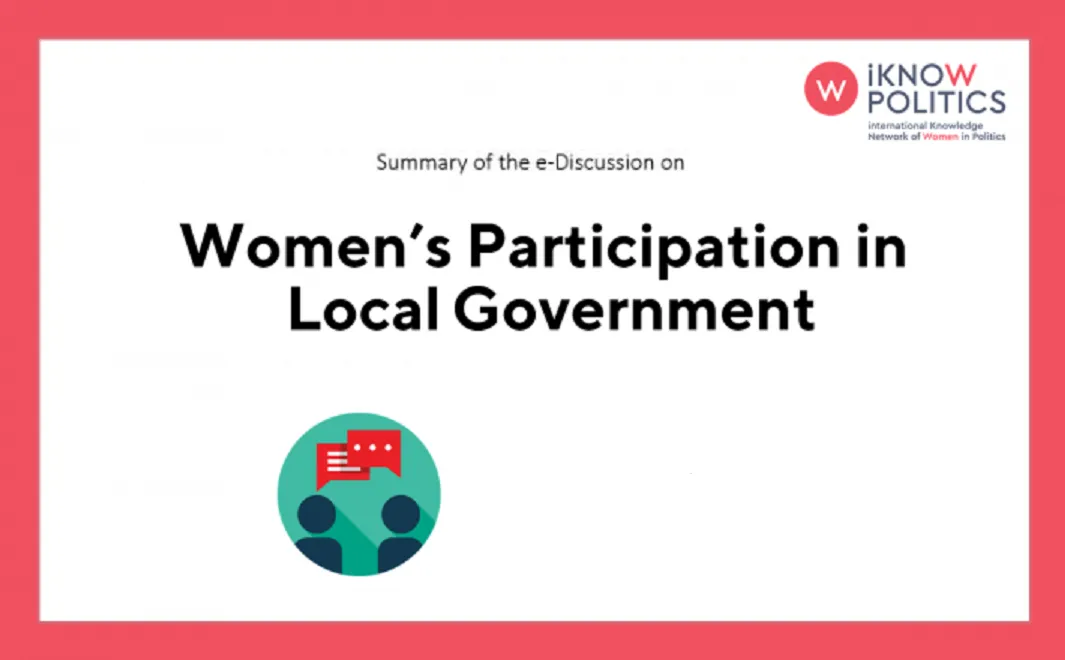Local governments and gender quotas can improve women's political participation, report states

One of the 17 sustainable development goals of the United Nations is to achieve gender equality and empower all women and girls. While progress has already been made in fields such as education and equal pay, women and girls remain underrepresented in political decision-making roles. Women's participation and representation in decision making bodies at executive and legislative levels has increased over the past decades, this has been slow and uneven across the world. In national parliaments, the global average of seats held by women is only 23 per cent, acccording to the Gender Quotas Database.
A report issued by The International Knowledge Network of Women in Politics (iKNOW Politics) argues that “the under-representation of women at any level of governance and decision-making results in a democratic deficit.”
The publication marks another step in International IDEA’s efforts to promote gender equality in democracy worldwide. International IDEA promotes women’s participation and representation at all levels of decision making through initiatives that engage political parties as the “real gate keepers” on women’s political empowerment. The initiatives undertaken by International IDEA support political parties to institutionalise gender equality measures to transform from their intra-party democracy processes on the identification, selection and nomination of candidates for elective positions of decision making at both local and national governance levels.
The report, issued in April 2018, called on academics, policymakers and field experts to weigh in on the state of women’s political participation in local government through a month-long e-discussion. It incorporated perspectives from Argentina, India, Indonesia, the Netherlands, Nigeria, South Africa, Uganda, and the United States, among other countries.
The report argues that women are deterred from entering politics due to challenges that include negative cultural perceptions about women in leadership and violence against women, among other reasons. Some case studies found that women are forbidden from entering politics because of the challenge they may pose to traditional power structures, such as in Uganda, where it is feared that women will become “promiscuous” once they become politically active.
The report found that setting mandatory quotas for women’s participation is an effective tool for increasing women’s participation. Comparing different political bodies in Uganda, for example, found those with a quota in place see a sharp increase in women’s participation compared with the positions without a quota. However, as pointed out by a contributor from Nigeria, legal quotas are often not enforced, so electoral management bodies must ensure their proper implementation for them to be effective.
The report also emphasized the role that local governments must play in empowering women. “Grassroots political engagement and mobilization is one of the foundational principles of a democratic society,” the report argues. “Local government authorities have a central role in safeguarding democratic practices as they are the closest to the grassroots.”
Through information-sharing and connecting key actors in different regions, iKNOW Politics hopes to foster greater political participation of women, toward a world in which women are as free as men to participate in the political sphere.
Established in 2007, iKNOW Politics is a joint project of International IDEA, the Inter-parliamentary Union (IPU), the United Nations Development Programme (UNDP), and the United Nations Entity for Gender Equality and the Empowerment of Women (UN Women).




